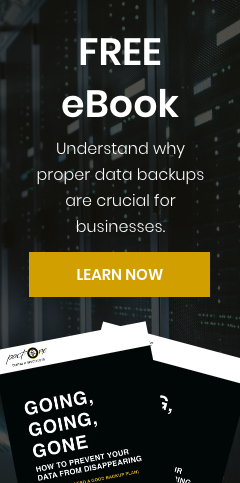In the modern healthcare industry, dental practice management software is essential to practice success. Using the right software, you can increase employee productivity, boost operational efficiency, and regain control over costs. Today, many dental practice applications are cloud-based, which means they are accessible from any device with an internet connection. This enables workforce mobility and reduces costs by letting employees use their own devices for work, regardless of which operating system they use.
Considering the wide variety of business software in the market, you need to be selective about the ones you use in your practice. Here are five types of applications your practice should have:
#1. Practice Management
Dental practice management software is an all-in-one solution for administrative tasks like charting, billing, and patient communications. It’s an important software solution that ensures compliance. Most examples of practice management software are cloud-based and are delivered as a subscription service. This means they are always up to date and your apps and data are accessible from anywhere. Locally installed solutions also exist, but a cloud-based deployment tends to offer more benefits.
Your practice management software should work for you, not against you. Having the right software is beneficial for your patients and staff. Practice management tools help with entering client data more efficiently, making process times faster. Having a well-design interface will also help your staff make fewer data entry mistakes, which is crucial to patient health.
#2. Document Management
Dental documentation and records have changed significantly over time due to federal regulations and advancements in technology. Most dental practices have opted to use electronic documents including digital images and photographs while maintaining compliance, with security standards, and privacy rules.
A document management system makes it easy to do paperwork and keep track of all your records. It comes with data capture features to process files from various sources and store them in a logical order. It’s also loaded with enterprise search features that retrieve the documents you need in seconds. This is particularly useful for delivering timely diagnoses and improving patient care across the board.
#3. Patient Education
Any good dentist does not only treat their patients but also educates them. You need to be able to speak to your patients using terms that are easy to understand. A patient education app helps you do that by providing things like 3D images and clinical information presented in layman's terms. The information can be forwarded by email to patients or printed out. Some patient education apps are also highly customizable, allowing you to upload your content as necessary.
Patient education software or apps allow dentists to communicate with patients effectively through every stage of their visit. Starting from when they book their first appointment through meeting with the receptionist and receiving their diagnosis and treatment plan. You could even use specific software tools to follow up with patients, keeping your excellent practice service and dental expertise top of mind.
#4. Online Storage
With online storage, you can enjoy the convenience of a centrally managed repository of information that’s accessible from anywhere. It’s the basis of any cloud computing infrastructure, where your files and folders are hosted in a secure data center, such as those operated by Amazon, Microsoft, or Google. As long as you manage access rights carefully and use multifactor authentication, online storage is far more secure and resilient than local computers and servers. Your data is stored in multiple physical locations, keeping it safe from natural disasters and accidental deletion.
3D dental X-rays are a critical piece of quality care and better quality imaging. As technology improves so does the quality and resolution of images, meaning larger file sizes. This could lead to a demand for higher data storage. Online storage has a much greater storage capacity for larger files and images than your server or CD.
#5. Encrypted Email
Email is one of the most useful tools for communicating with both your staff and patients. Encrypted email is as straightforward as conventional email, but it encrypts or “jumbles” the message as it travels between you and your recipient. This makes your message unreadable to anyone besides your intended reader and protects your data from getting lost or stolen in transit. It is crucial in communications that contain sensitive information and in ensuring your practice’s compliance with data security regulations.
Encrypting patient data is important for your dental practice because it helps to protect patient information against unauthorized access from hackers and potential phishing attempts. It can also safeguard your practice from data breaches, non-compliance fees, and damage to your practice's reputation.
With these solutions, you’ll be a smarter and more informed practice owner. You can monitor the progress of all these goals quickly and effectively. You’ll be happy to find that you are relieved from some manual processes. And now you can focus on the work you want your staff and yourself to do.
If you're looking to take advantage of these solutions but don't know how you need to partner with a trusted managed IT services provider (MSP) like Pact-One. Our dental IT experts will assist you in choosing the right equipment for your needs. Call us today to learn more.


